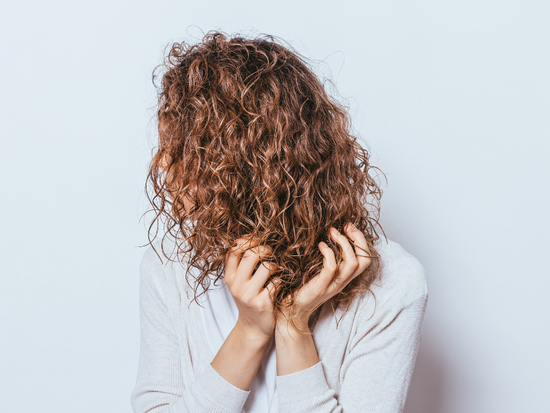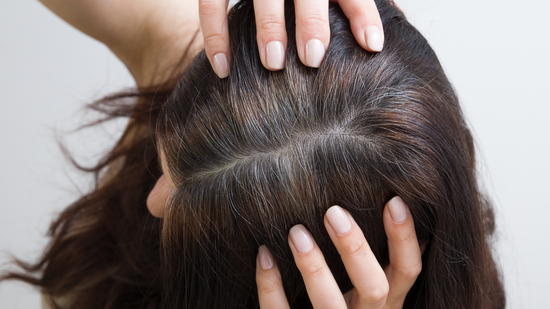
Stimulate hair growth with holistic scalp care
Full, shiny hair is a byword for health and beauty in our society. Men and women suffer all the more when hair falls out or hair growth is restricted. Hair...
Thinning hair & diffuse hair loss across the entire scalp
Circular hair loss & hair loss during or after pregnancy
Total hair loss & short, few or weak eyelashes & eyebrows

Hair has always been a symbol and epitome of female beauty and health. Hair loss in women is therefore often associated with great psychological stress for many people. Many people also find it difficult to talk openly about hair loss and withdraw more and more - this can lead to social isolation. And more and more women are affected by it. A hair growth specialist has made it his mission to accompany women with hair problems on their way back to beautiful and vital hair.


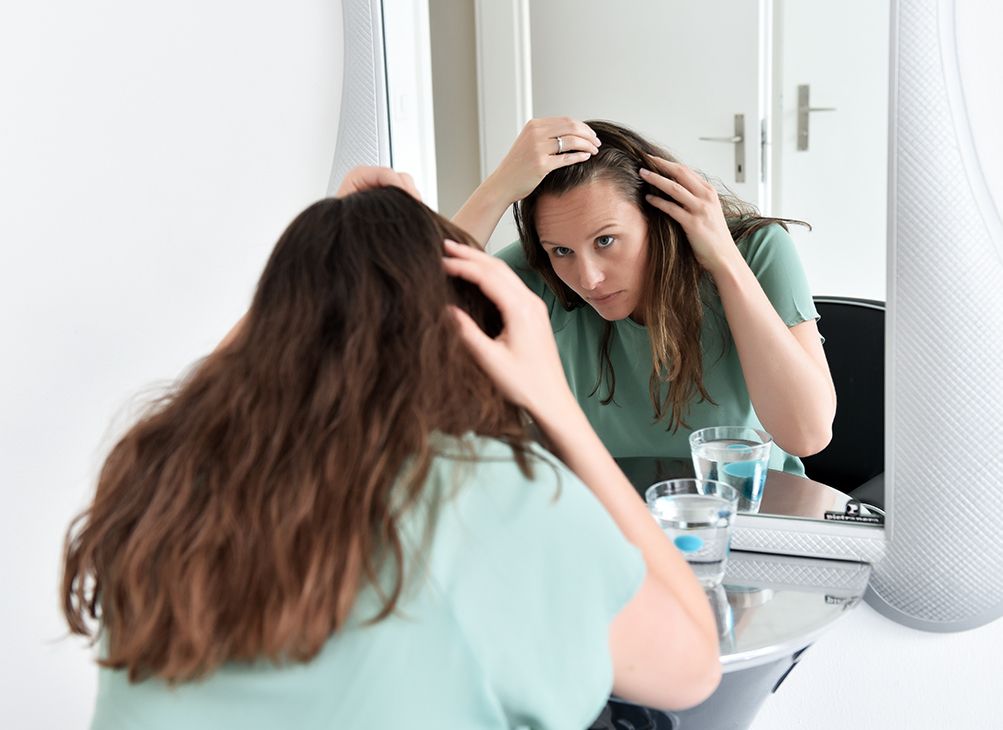
Many women experience hair loss during intense phases of their lives. Hormonal changes, for example during pregnancy, menopause or later puberty, can disrupt hair growth. However, psychological triggers and nutritional deficiencies can also affect the hair and have corresponding effects over years.
There is usually not a single trigger, but a combination of different causes such as stress, poor diet, crash diets, pregnancy and menopause and many more, ultimately lead to hair loss. Genetic hair loss is rare in women, but is still on the rise.
Regardless of the type of hair loss that may be affecting you, consulting with a certified hair growth specialist will provide you with a care treatment tailored to you. The sophisticated concept for natural and full hair is individually adapted to your needs and thus ensures optimal results. Our hair growth specialists therefore offer a natural alternative to hair transplantation. Make an appointment with a hair growth specialist near you and see the results for yourself.
The circular hair loss can be visible anywhere on the head. Within a very short period of time, bald, round or oval areas appear due to hair loss. These quickly become visible to outsiders because, depending on your hairstyle, the areas can no longer be covered.
In around half of the women affected, these bald spots close over time, even without treatment.
However, it can also happen that the hair loss progresses and leads to the loss of all hair on the head (alopecia totalis). In the worst case, it can even lead to the loss of all body hair, such as eyebrows, eyelashes and pubic hair (alopecia universalis).
If you are affected by circular hair loss, you should monitor the progress of the bald spots weekly. You can also wait a while if the outbreak is minimal - i.e. small areas on the head that don't (yet) bother you. However, if these areas become larger or you are unsure, contact a local hair growth specialist .

As you age, your hair roots may produce thinner and thinner hair.
Often the problem lies with the scalp or is due to a nutrient deficiency.
But hormonal fluctuations - especially menopause - can also cause hair to become increasingly thin.
If you notice that your hairstyle is becoming increasingly difficult to hold, your hair is breaking off more and more and splitting more quickly, consult a hair growth specialist. They will be able to quickly recommend the right application for you.
However, it is important to remember that thin hair is not a final fate for most women! With the right approach, you can reactivate your hair growth in just a few months.
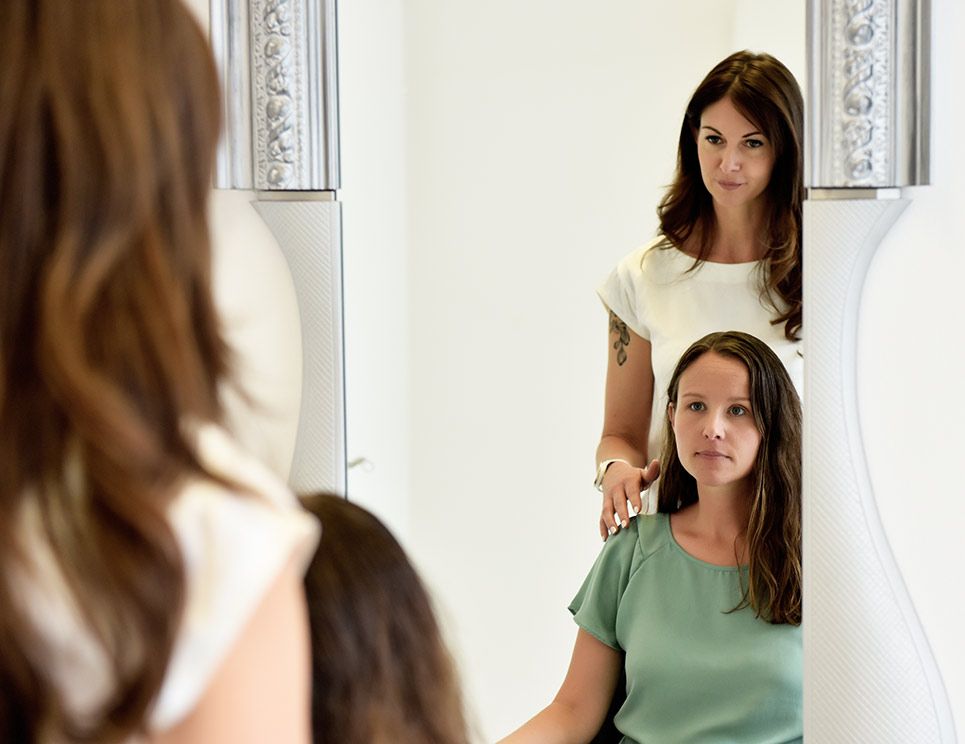
The most common form of hair loss in women is “diffuse hair loss”. This means that the hair loss affects the entire scalp area and is initially barely noticeable.
Causes can be hormone fluctuations, thyroid diseases, iron deficiency, infections, scalp diseases, stress or a lack of fat and many others.
In advanced stages, bald spots can form, usually along the crown. But it doesn't have to come to that. A hair growth specialist can provide you with competent advice and support.
During pregnancy, your body experiences major hormonal changes. This is often reflected in changes to the skin and hair. While many women enjoy particularly full, fast-growing hair due to the increased estrogen during pregnancy, others notice that their hair is increasingly falling out. Expectant mothers can find further information at www.bambiona.de.
Causes of hair loss during pregnancy
The reasons for hair loss during pregnancy can often be found in inappropriate scalp and hair care in the earlier years. Hair loss can also be caused by a lack of vitamins and minerals. With the help of a scalp analysis with the micro camera, a hair growth specialist can indicate possible hair loss at an early stage.
In the case of mild hair loss during pregnancy, iron supplementation (you can obtain increased dosages from your gynecologist) and a change to a diet rich in vitamins and minerals as well as nutritional supplements can usually help. Use natural and mild scalp and hair care products such as shampoos and conditioners. Discuss a more tolerable hair color with your hairdresser (possibly switching to plant-based colors); during this time, no synthetic hair color should come into contact with your sensitive scalp. If you notice severe hair loss, a visit to a hair growth specialist can have a calming effect.
Perhaps the hair loss coincides with pregnancy and has other causes, then a visit to a doctor is advisable. When it comes to factors such as stress, pregnancy and birth hypnosis or various anti-stress coaching offers can bring calm. Allergic scalps and dry, flaky scalps can usually be quickly remedied with gentle and correct scalp care.
Women don't have to worry as much about temporary hair loss after giving birth. The only thing responsible for this is the drop in estrogen levels. Hair growth will soon return to normal.
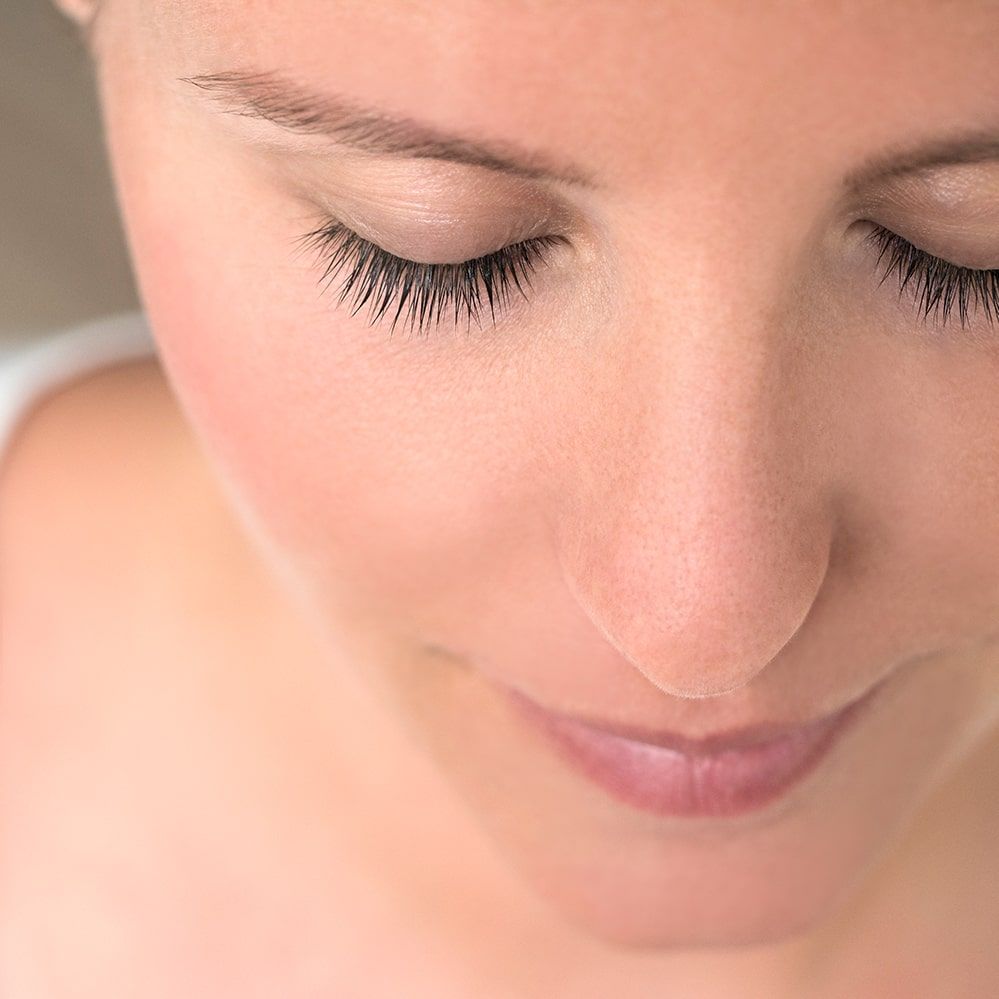
Women with short, few, weak, damaged or lost eyelashes, also caused by chemotherapy, cosmetics or extensions, want fuller, thicker and more expressive eyelashes again. Care with our Ayurveda Lash Active Tonic with natural ingredients can stimulate the growth of your eyelashes. The tonic promotes the eyelashes to become thicker, darker and longer. Ayurveda Lash Active Tonic is also recommended for use to stimulate eyebrow growth, fill in and lengthen the brows. Buy in the online shop .

Full, shiny hair is a byword for health and beauty in our society. Men and women suffer all the more when hair falls out or hair growth is restricted. Hair...
